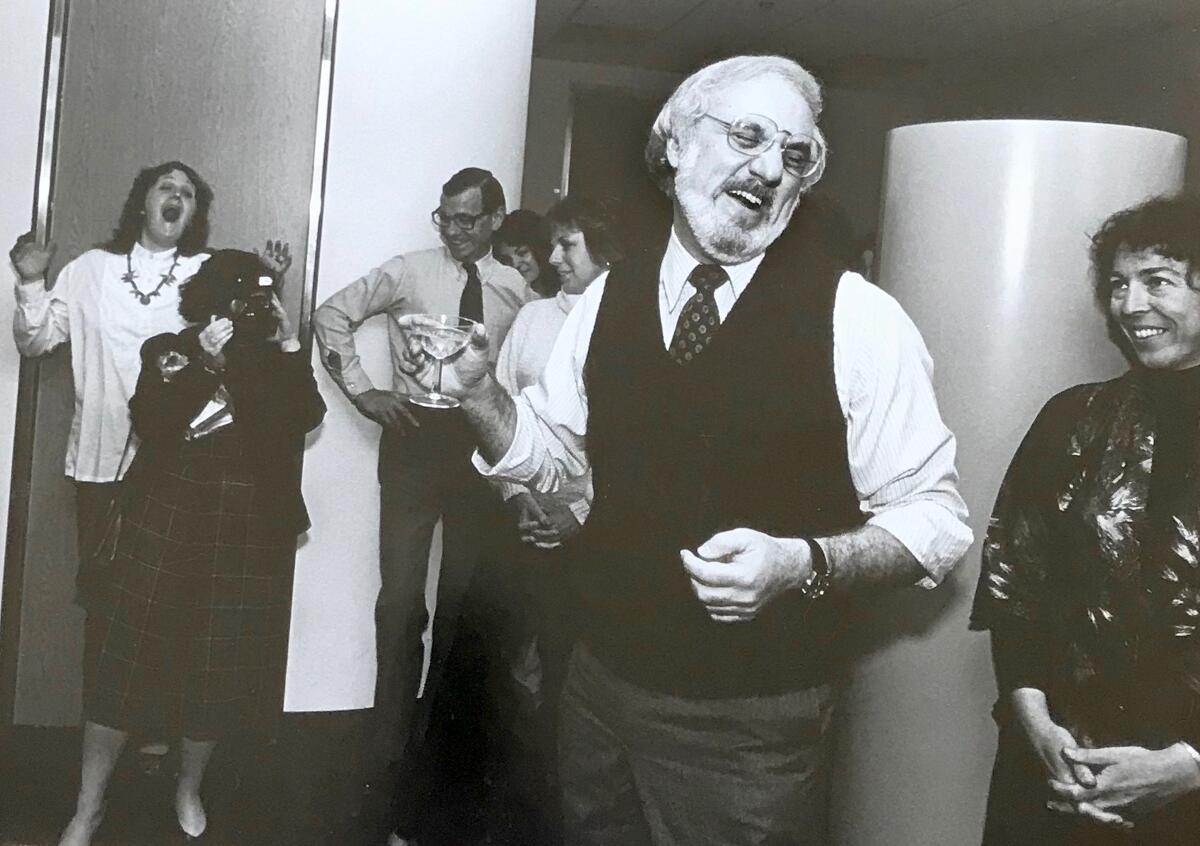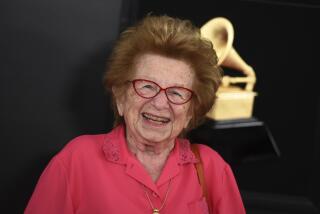Pulitzer Prize winner and former L.A. Times music critic Martin Bernheimer dies at 83

Martin Bernheimer, the former Los Angeles Times music critic and a Pulitzer Prize winner, died Sunday morning after a long battle with sarcoma at his home in New York. He was 83.
The news was confirmed by his wife, former Newsday theater critic Linda Winer.
âCovering music and dance for more than 30 years at The Times was invariably stimulating and provocative, sometimes trying, occasionally exhausting and often very rewarding,â Bernheimer said at the time of his retirement in 1996. âI am grateful for having been given this long-playing opportunity, but there is a time to stay and a time to leave. I think the time has come for me to explore other avenues and weigh other career options.â
âMartin Bernheimer has contributed greatly to the critical community and to the Los Angeles Times over the last three decades,â the paperâs then-Editor and Executive Vice President Shelby Coffey III said in 1996. âHe has been a strong and distinctive voice for high standards in classical music and dance. His excellent work is much appreciated and we wish him well in his next chapter of his career.â
Bernheimer was renowned internationally for the strong opinions he voiced in his reviews combined with a singular wit and personality that often provoked strong responses from his readers, both positive and negative.
âI have a reputation for being tough,â he told the Brown Universityâs Alumni Magazine in 2012. âIâm not a patsy. Iâm not an extension of the [opera houseâs] PR department.â
Bernheimer was born on Sept. 28, 1936, in Munich, Germany. He emigrated to the United States in 1940 and was naturalized in 1946, according to a biographical encyclopedia of Pulitzer Prize winners.
He was 14 years old when he first tried to break into journalism. While on a family trip back to Germany, Bernheimer submitted an article about the opera scene in Munich to the U.S.magazine Opera News. The publication accepted the piece, only to scrap it at the last minute. âI was just a smartass kid,â he told Brownâs magazine in 2012. âBut I started writing these fluke things.â
His family moved in 1941 to Massachusetts, where his parents took Bernheimer to see operas once or twice a year. The first one he saw was âCarmen,â performed by the touring San Carlo Opera Company. âIn retrospect, it was probably a pretty lackluster performance,â he told Brownâs alumni magazine. âBut I was struck by the fusion of drama and music.â
After attending Brown, where he earned a bachelorâs degree with honors in music, he attended the University of Music and Performing Arts Munich in 1958. Upon returning to the U.S., Bernheimer became both a student and a part-time lecturer at New York University, eventually receiving a masterâs degree in music.
While enrolled at NYU, he began his career writing about music as a member of the music staff of the New York Herald Tribune before leaving to become a temporary music critic at the New York Post in 1961. That year he became a contributing editor for the Musical Courier.
From 1962 until 1965 he served as assistant to the music editor of the Saturday Review and managing editor of the Philharmonic Hall Program Magazine. He joined The Times in 1965 at the age of 28, serving as the paperâs music editor and chief critic.
âYou donât have to be a musician to be a good critic,â he told Brownâs alumni magazine. âJust like you donât have to lay an egg to know youâve been served a rotten one.â
During Bernheimerâs three decades with The Times, he received ASCAPâs Deems Taylor Award in 1974 and 1978 for outstanding service to music and journalism before being awarded the Pulitzer for criticism in 1982.
He was a member of several music-related educational programs and became a faculty member of the Rockefeller program for the training of music critics at USC in 1966. In 1969, he joined the music faculty of UCLA and in 1982 he became an honorary member of a chapter of Pi Kappa Lambda, the national music honor society. Bernheimer was a regular lecturer and also taught criticism at Cal State Northridge, San Diego State and California Institute of the Arts.
After leaving the paper, Bernheimer served as a correspondent in New York for the London-based Financial Times, covering opera, classical music and dance. He also served on the board of Opera magazine.
âIâm a fossil â a throwback to a virtually extinct age,â he told Brownâs magazine. âBut Iâll continue until they stop paying me or until I drop dead.â
Bernheimer is survived by his wife, Linda, and four children: Mark Bernheimer, Nora Caruso, Marina Bernheimer and Erika Bernheimer. He is also survived by his former wife, Cindy Bernheimer.
More to Read
Start your day right
Sign up for Essential California for the L.A. Times biggest news, features and recommendations in your inbox six days a week.
You may occasionally receive promotional content from the Los Angeles Times.







